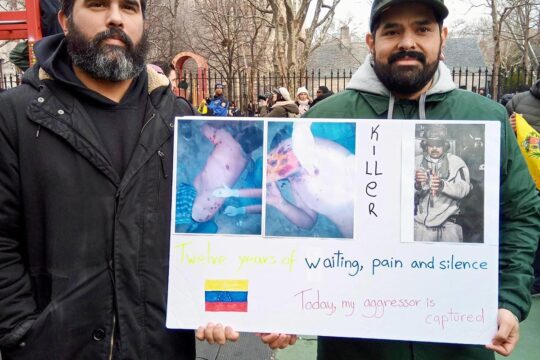Eritrea is rebuilding its army and still destabilising its neighbours, particularly Ethiopia, following a 2018 decision to lift an arms embargo, according to a report by an American rights monitor.
The small country of around 3.5 million people in the Horn of Africa is sometimes nicknamed the "North Korea of Africa" after three decades of iron-fisted rule by President Isaias Afwerki.
Long-running foes, Eritrea and Ethiopia signed a much-lauded peace deal in 2018 -- followed by the lifting of UN arms sanctions -- with Asmara's forces then pitched into the deadly 2020-2022 war in neighbouring Tigray province.
"Today, with sanctions lifted, Eritrea is rebuilding its military, bolstering its defenses, and continuing to destabilize its neighbors," said the report by NGO The Sentry, published late Monday.
"It should be expected to continue to do so if the status quo remains unchanged," it warned.
Asked about the accusations, Eritrean Information Minister Yemane Ghebremeskel criticised the "fabricated narrative" of the report which sought to make Eritrea a "scapegoat".
"The new tension in the region is the result of Ethiopia's unlawful and publicly announced policy of acquiring port and coastal land," he told AFP, a reference to Addis Ababa's long-held desire for a seaport.
The Sentry, which specialises in tracking the corrupt money that finances wars, said Eritrea had originally been sanctioned in 2009 for its alleged support of Somali jihadists.
In its report, The Sentry also reviewed abuses committed during the Tigray war in northern Ethiopia.
The conflict pitted Tigrayans against Ethiopian and Eritrean forces and at least 600,000 people were killed, according to the African Union.
"War crimes were perpetrated by all parties to the conflict, but the nature of atrocities and war profiteering carried out by the EDF was unmatched in scale and premeditation," The Sentry said, a reference to the Eritrean Defence Force (EDF).
While a peace agreement -- not involving Eritrea -- ended the fighting, Eritrean troops remain in Tigray to this day.
The single-party state has been ruled for decades by Isaias, who led the country to independence from Ethiopia in 1993.
It consistently ranks among the worst in the world for rights -- in last place for press freedom, according to Reporters Without Borders, and 175th out of 183 for human development in 2022, according to the United Nations.


